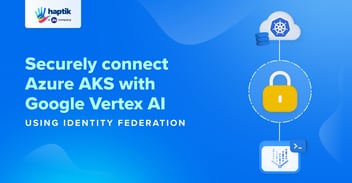In today’s dynamic enterprise landscape, Customer Experience (CX) is no longer just a service function, it is a strategic advantage. Enterprises are seeking innovative ways to engage customers, personalize interactions, and create seamless, scalable journeys.
GenAI models such as ChatGPT, Claude, and Gemini leverage large language models (LLMs) to simulate human-like understanding and communication. Above this capability emerges a more powerful and transformative innovation, the AI Agent, an intelligent, autonomous digital co-worker that doesn't just respond, but thinks, acts, and evolves. These agentic services, when integrated with advanced voice recognition and voice generation technologies, are powering futuristic AI Voice Agents, elevating customer experience (CX) to an entirely new level of excellence.
ALSO READ: Meet Haptik's AI Agents: The Powerhouse of Human-Like Customer Experiences
This blog explores how enterprises can harness this transformative innovation to disrupt traditional customer engagement models and significantly enhance customer experience.
What are AI Agents?
Unlike traditional bots or rule-based assistants, AI agents are designed to take autonomous actions based on intent, history, and context. They are goal-driven, proactive, and capable of executing multi-step workflows, offering a leap beyond traditional conversational automation.
RELATED: Are Conversational AI Agents Just Fancy Chatbots?
Key Ways AI Agents Are Disrupting Enterprise CX
1. Next-Gen Virtual Assistants → Autonomous AI Agents
GenAI has enabled the evolution of simple bots into Next-Gen Virtual Assistants that:
- Understand nuanced or complex enterprise queries
- Engage in ‘context-based’ conversations and capable to understand the ‘mood’
- Escalate to humans with full context
But AI Agents take this much further. They are not just assistants; they are problem-solvers and process executors.
Key Capabilities of AI Agents:
- Proactive Issue Resolution: Detect anomalies in product/service usage, initiate diagnostics, and resolve or notify before the user reports it
- Automated Workflow Execution: Manage subscription changes, raise support tickets, or process returns autonomously.
- Personalized Journey Orchestration: Proactively guide users through tailored workflows, upgrades, or onboarding sequences based on historical interaction data.
Result: Reduced time-to-resolution, lower operational load, and genuinely delightful customer experiences.
2. Agent Assist: Empowering Humans with AI Agents
In live support scenarios, AI Agents serve as real-time copilots for customer service teams:
- Recommending responses
- Summarizing complex conversations
- Surfacing the next-best action instantly
This elevates agent productivity, shortens handling time, and ensures high-touch interactions remain deeply human, even in a GenAI-powered environment.
3. Sentiment Intelligence & Feedback Looping
AI Agents are adept at processing massive feedback volumes and extracting actionable sentiment from:
- Support conversations
- Survey responses
- Public social conversations
By converting signals into strategy, they help CX teams rapidly respond to the shifting customer needs.
READ: Why GenAI Call Auditing Is the Next Big Thing
4. Multilingual & Inclusive Support
AI Agents break language barriers effortlessly through real-time translation and intent recognition, making enterprise-grade support globally inclusive and scalable without compromising experience.
Another area where multilingual support really shines is voice. For people who can’t or don’t want to type, AI voice agents make it easy to just speak naturally in their own language, tone, and pace. It’s simple, intuitive, and feels a lot more human.
5. AI Voice Agents: Real-Time and Inclusive CX
Voice AI Agents empower enterprises to engage a significant segment of consumers who either cannot type or prefer not to engage through lengthy text inputs. Beyond this inclusivity, businesses can also benefit from Voice AI Agents through:
- Natural, human-like conversations at scale
- Round-the-clock voice support without downtime (embracing real-time assist)
- Multilingual and localized interactions for Global reach
Challenges to Address in AI Agents
While AI Agents offer unprecedented potential, responsible deployment remains critical:
- Data Protection & Compliance: Adherence to frameworks like GDPR, DPDPA, HIPAA, etc.
- Bias & Hallucination Risks: Ensuring agents generate accurate and fair outputs
- System Integration: Smooth orchestration between agents and legacy/ERP systems
- Human-in-the-Loop Design: Oversight for sensitive, financial, or legal conversations
- AI Governance Frameworks: Defining transparent roles, accountability, and usage boundaries
The Future is AI Agent-First CX
The CX paradigm is shifting from "automate to assist" to "autonomously resolve." AI Agents will increasingly:
- Act as virtual teammates for support and ops teams
- Own and optimize customer journeys
- Drive real-time personalization at scale
Enterprises that embrace AI Agents not as tools but as intelligent co-workers will lead the way in customer-centric innovation.
Endnote
Generative AI + AI Agents + Voice = The CX Revolution.
For enterprises, this is more than a trend, it is an inflection point. AI Agents are not just technological upgraded pieces, it's a paradigm shift in customer experience. Enterprises that embrace it early and responsibly are poised to lead in customer loyalty, operational efficiency, and innovation.





